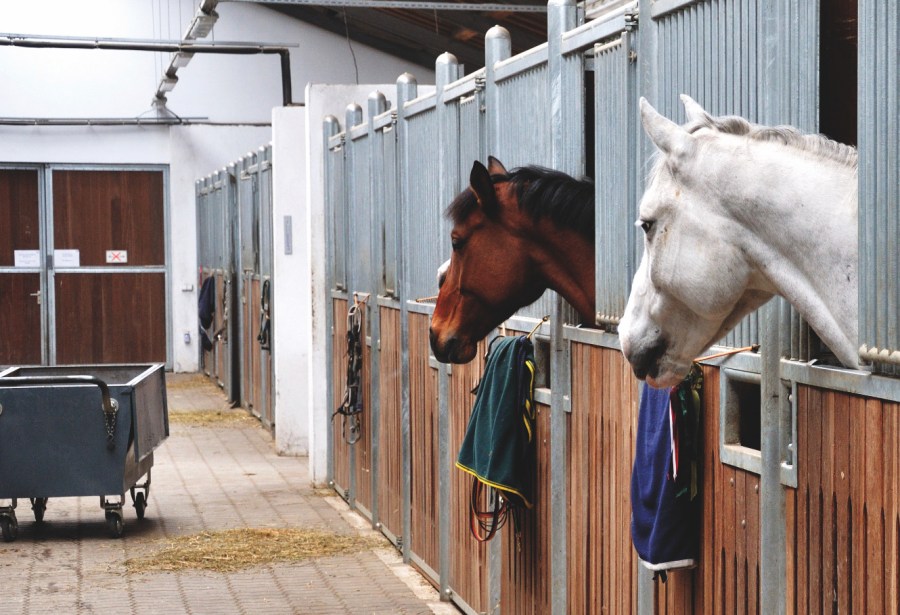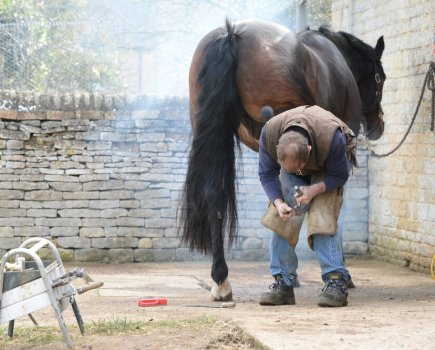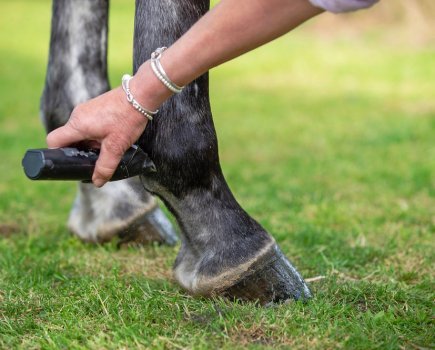It is well documented that equine obesity is a ticking welfare bomb and poses all sorts of health implications for overweight horses and ponies. Here are five common obstacles that horse owners face when trying to manage their charge’s waistline and how to overcome them.
1 What does a healthy horse look like?
When you see your horse regularly, it’s easy to miss subtle changes or fluctuations. It’s sometimes hard to be honest with yourself and admit to your horse being overweight too. However, by doing so you will be able to take action and get him get fitter, leaner and, most importantly, healthier.
Take action: Periodically doing a body condition score of your horse can help you to look at him objectively, as the criteria is laid out in front of you. To practise body condition scoring you can take Spiller’s test here.
Regular use of a weigh tape can also help identify fluctuations. Alternatively ask your vet for their opinion.
Taking regular photos is another useful way to track weight, and you can look back at them for motivation to see how far you’ve come.
2 You keep your horse on a livery yard
While there are many benefits to keeping your horse on a livery yard, there can also be downsides, such as limited control and choices when it comes to feeding and turnout.
You may not be allowed to fence off a large field into smaller paddocks, set up a track system or move him to an area with less grass to munch on. Perhaps you also have to use the hay and feed provided on site.
Take action: It can be difficult to bring up your horse’s requirements to yard owners, but if it’s in your horse’s best interests, you really do need to. Consider having a knowledgable, unbiaised third party involved in the conversation — your vet, for example — and ensure it is a discussion, not an argument.
Remember: A good livery yard treats horses as individuals, rather than employing a ‘one-size-fits-all’ policy, but it works both ways. Can your yard physically offer/provide what you are asking for? If your yard can’t, or your yard owner disagrees, you might need to rethink your livery arrangements.
3 Your grazing is limited
In days gone by, there was more grazing land available, meaning that paddocks could be rotated for all-year turnout. Now, pressure on grazing has become greater, since there is less of it, and horses spend more time stabled.
This means horses are moving less, and so burning fewer calories, and ad lib forage to keep the gut healthy is often supplemented with hard feed. Less exercise, more food equals one thing: weight gain!
Take action: Without weighing haynets or analysing its sugar content, you don’t know exactly what your horse is eating. Offering sugary treats to help alleviate boredom can also be detrimental to waistlines.
It is very important you seek advice from a qualified nutritionist in order to provide the most appropriate diet for your horse.
4 Your horse is a ‘good doer’
Horses are individuals, but heavier breeds such as cobs or draught-types are often good-doers and easily put on weight, while lighter breeds require a specially tailored diet to maintain their weight.
Take action: If you don’t fully understand the ingredients listed on your feed bag or whether the recommended quantity is suitable for your horse, contact a nutritionist.
5 You haven’t got time to ride every day
Your horse’s workload is an important factor in managing weight. Providing enough exercise can require a lot of time, whether you choose to ride, or do groundwork such as lungeing or long lining. For horses who cannot be exercised, managing weight can be even harder, and requires a lot of perseverance to keep them healthy.
Take action: Look for other exercising options: perhaps having a sharer or paying a freelance rider to exercise your horse a few times a week. Interval training and similar calorie-burning exercises are effective in a short space of time.
6 Pressure from riders around you
Everyone has an opinion, and it can be difficult to figure out who to listen to. Yard politics and interference/criticism from other liveries can make it very tricky to manage your horse the way you want to, particularly if you have to restrict their diet through limited hard feed or strip grazing.
Social media can also be a source for confusion, with people commenting on photos of overweight horses saying how well they look or the rider of an obese horse celebrating a competition win.
Take action: Ultimately, you know your horse better than anyone else. While it’s important to listen to constructive comments from people around you, make sure it’s those with the correct credentials whose words you heed. Your vet, trainer or nutritionist, for example.
Don’t let others impact your decision to protect your horse’s health.









